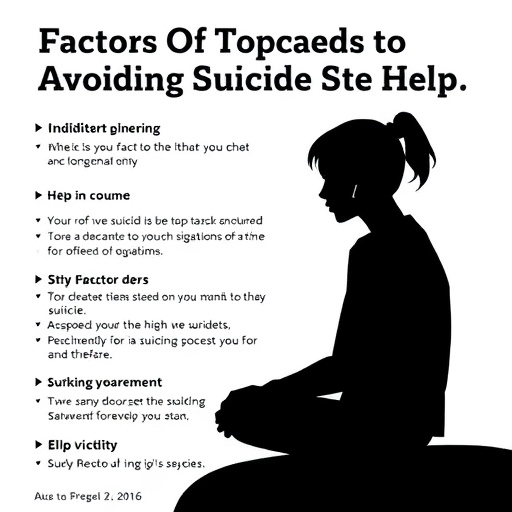In a groundbreaking new study emerging from Norway, researchers have uncovered pivotal insights into why certain individuals struggling with suicidal thoughts choose not to seek help or information. This investigation delves deep into the demographic profiles and psychological attitudes shaping such critical decisions, shedding light on a public health challenge that has long evaded comprehensive understanding.
Suicide remains a pressing global concern, with myriad factors influencing whether individuals reach out for assistance. In Norway, approximately half of those who tragically end their lives by suicide did not engage with specialist mental health services in the year preceding their deaths. The urgency to unravel the factors behind this silence has propelled research efforts aimed at identifying who is less likely to seek aid and why.
The study surveyed a sizable population sample of over three thousand individuals from Mid- and West-Norway, regions subsequently exposed to a media campaign focused on suicide prevention. Out of these participants, a notable subgroup of 167 individuals explicitly stated that they would avoid seeking any help or information if they were to experience suicidal thoughts. This resistance to seeking support forms the central subject of the research.
Intriguingly, the data pinpointed several demographic tendencies within this subgroup. Men, people in their forties—specifically aged 40 to 49—and those still active in the workforce rather than retired, showed a higher likelihood of rejecting help. Moreover, a history of exposure to suicide or suicide attempts within their social circles, such as family or friends, unexpectedly correlated with a reluctance to pursue assistance, raising complex questions about the interplay between personal experience and help-seeking behavior.
Beyond demographics, the attitudes held by individuals refusing help are telling. The study revealed significantly more negative perceptions related to suicide itself; participants were more prone to believe that suicide is an unpreventable phenomenon or a taboo subject not worthy of open discussion. This fatalistic outlook may serve as a psychological barrier, further entrenching their reticence.
Mental health stigma emerged as another formidable obstacle. Many respondents expressed a desire to conceal depressive symptoms and a preference to handle their struggles independently, without external interference. This internalized stigma can prevent individuals from accessing care that might otherwise mitigate crisis, intensifying their isolation.
Help-seeking carries its own set of challenges, as attitudes around professional mental health services often involve feelings of inferiority or skepticism about their efficacy. The research uncovered that those unwilling to seek help doubted their ability to obtain appropriate care and expressed discomfort or embarrassment at the mere prospect of consulting professionals. Such perceptions contribute to a dangerous feedback loop, where fear or mistrust limits engagement with lifesaving resources.
The role of social support stood out as well. Compared to their help-seeking counterparts, the non-help-seeking group reported significantly lower levels of perceived support from family and friends. Isolation from trusted social networks may exacerbate feelings of hopelessness and prevent crucial conversations that can foster intervention and recovery.
To disentangle these factors, the researchers employed advanced statistical models, including stepwise logistic regression, which identified the most robust predictors of help-seeking resistance. Male sex, lack of confidence in accessing professional mental health care, inability to talk openly about personal problems with family or friends, and reluctance to disclose depression surfaced as statistically significant determinants. Combined, these predictors accounted for 28% of the variation in help-seeking intentions, a remarkable explanation given the complexity of human behavior.
The finding that the strongest predictor is not having confidence in obtaining professional care for suicidal ideation carries profound clinical and societal implications. It suggests that systemic barriers, negative perceptions of healthcare accessibility, and the perceived quality of mental health services profoundly impact whether individuals seek assistance in moments of crisis.
This study’s insights highlight a critical avenue for future suicide prevention strategies: efforts must focus not only on raising awareness but also on transforming attitudes and improving trust in mental health services. Ensuring that at-risk populations, particularly men in midlife, feel safe and confident accessing care could dramatically change the landscape of suicide prevention.
Moreover, addressing stigma surrounding openness about depression and facilitating supportive environments within families and communities may act as powerful buffers against suicidal despair. Encouraging authentic dialogues about mental health and suicide within social networks could disarm taboos and promote earlier intervention.
As Norway confronts these findings, the broader global mental health community can glean valuable lessons. Tailored interventions based on demographic and attitudinal profiles may prove essential in bridging the gap between suicidal individuals and the vital help they need. The complexity of the issue commands multifaceted approaches that merge clinical, social, and educational initiatives.
Ultimately, this research underscores the urgent need to destigmatize mental illness and help-seeking, foster confidence in professional care modalities, and cultivate stronger social support systems. These efforts could pave the way for more individuals to seek help proactively, potentially averting the devastating outcomes associated with untreated suicidal ideation.
The confluence of data-driven insight and compassionate public health action will be pivotal in shaping a future where fewer individuals suffer in silence. Enhancing the accessibility and perceived value of mental health care, especially for those demographics identified as most vulnerable, offers a beacon of hope in the broader fight against suicide.
This landmark study offers a rare and detailed look into the psychology and sociology underpinning a devastatingly common mental health crisis, illuminating paths toward more effective and empathetic interventions.
Subject of Research: Predictors of reluctance to seek help or information for suicidal thoughts among individuals in Norway.
Article Title: Predictors of not wanting to seek help or information for suicide thoughts.
Article References:
Mohn, C., Haga, E., Nilsson, H.S.W. et al. Predictors of not wanting to seek help or information for suicide thoughts.
BMC Psychiatry 25, 534 (2025). https://doi.org/10.1186/s12888-025-06985-z
Image Credits: AI Generated




